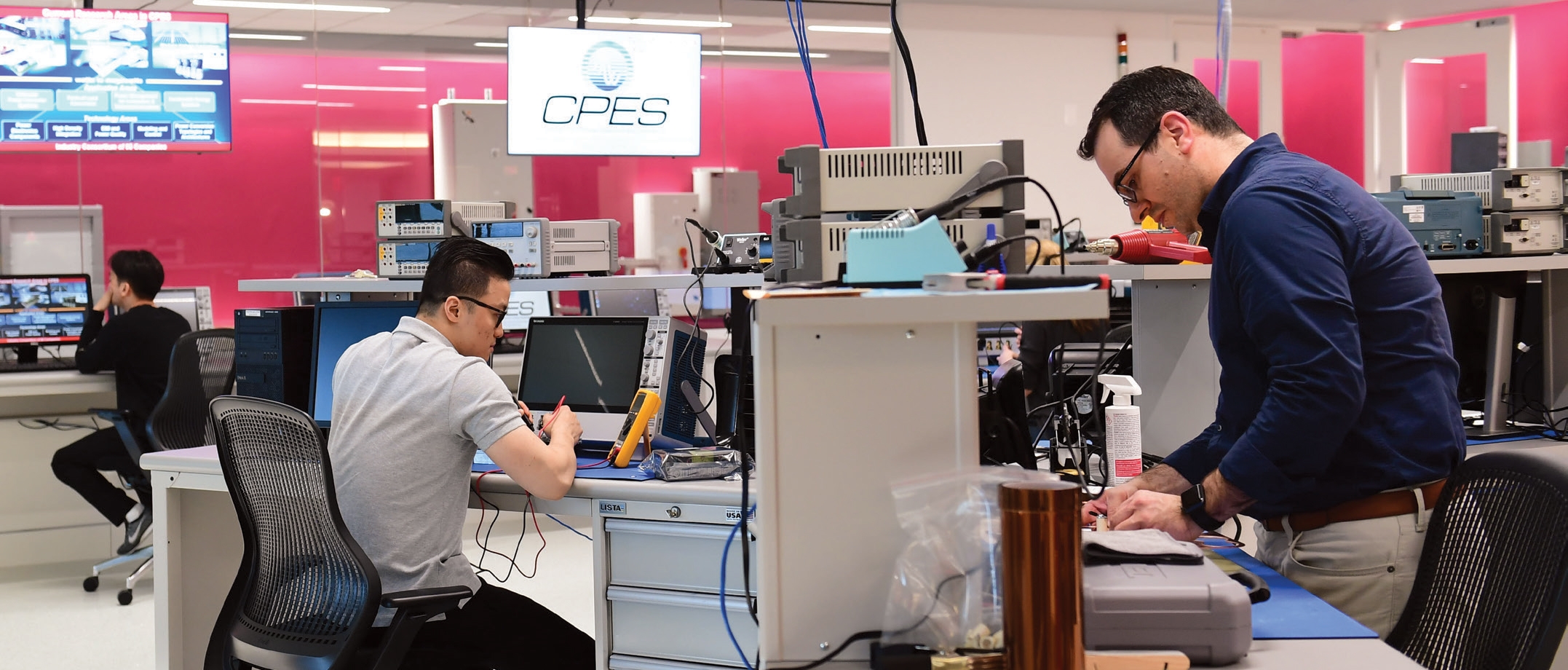Two locations, one lab: CPES expands into the greater Washington, D.C. metro area
May 20, 2019

For the uninitiated, “power electronics laboratory” may evoke a drab scene: a basement workspace. Flickering fluorescents. Wires piled haphazardly and trailing on the floor.
That vision dissolves with one peek into the CPES Center for Power Electronics Systems’ new lab in the greater Washington, D.C. region at the Virginia Tech Research Center—Arlington.
“The work we do is incredibly exciting and cutting-edge,” says Igor Cvetkovic, CPES technical director. The new lab, he explains, embraces those attributes. “This space is different from a conventional engineering lab.”
The lab is sleek: floor-to-ceiling windows on three sides, custom benches with stainless steel frames and glass tops.
“We want to show the energy—teamwork energy, creative energy,” says Cvetkovic. “We want passersby to see what we’re doing here and rethink any preconceived notions about power electronics.”
Virginia Tech’s School of Architecture + Design helped design the space to showcase the hands-on work being done from the benches. In another studio project, architecture students and the Washington-Alexandria Architecture Center are working to design something grander.
“They’ve developed master plans for a campus dedicated to transdisciplinary energy research and outreach for the 21st-century world, equipped with high voltage labs several stories high, design studios, energy museums, and housing for students and faculty,” says Christina DiMarino, CPES assistant director.
Energy systems initiative
The Electronics Energy Systems Initiative (EESI) is a cross-college cooperation with the goal of envisioning and enacting a carbonless future. EESI’s mission is to create sustainable and enjoyable energy systems that meet current and future demands, according to University Distinguished Professor Dushan Boroyevich, CPES director and associate vice president for research and innovation.
The new CPES lab is mobilizing to carry out this mission.
In the thick of it
One perk of the lab is its proximity to the new Amazon headquarters and the nation’s capital with its federal agencies and international embassies.
“Part of the land-grant mission is to be a global land-grant university,” says Boroyevich. “We’re working to fulfill this mission by increasing our visibility with federal agencies, foreign sponsors, and other potential partners.”
In addition to increasing visibility and encouraging collaboration, the new lab is well situated to boost recruitment.
“We can now offer graduate students, visiting scholars, and professors an urban environment,” says Boroyevich.
But the CPES metropolitan offshoot will maintain and strengthen ties with the Blacksburg lab.
In addition to a constant flow of new students and visits from faculty members who have offices in both locations or are taking sabbatical, more and more courses will be offered online, and the day-to-day activities of the labs in both locations will be livestreamed. “Technology is here to help,” says Cvetkovic.


